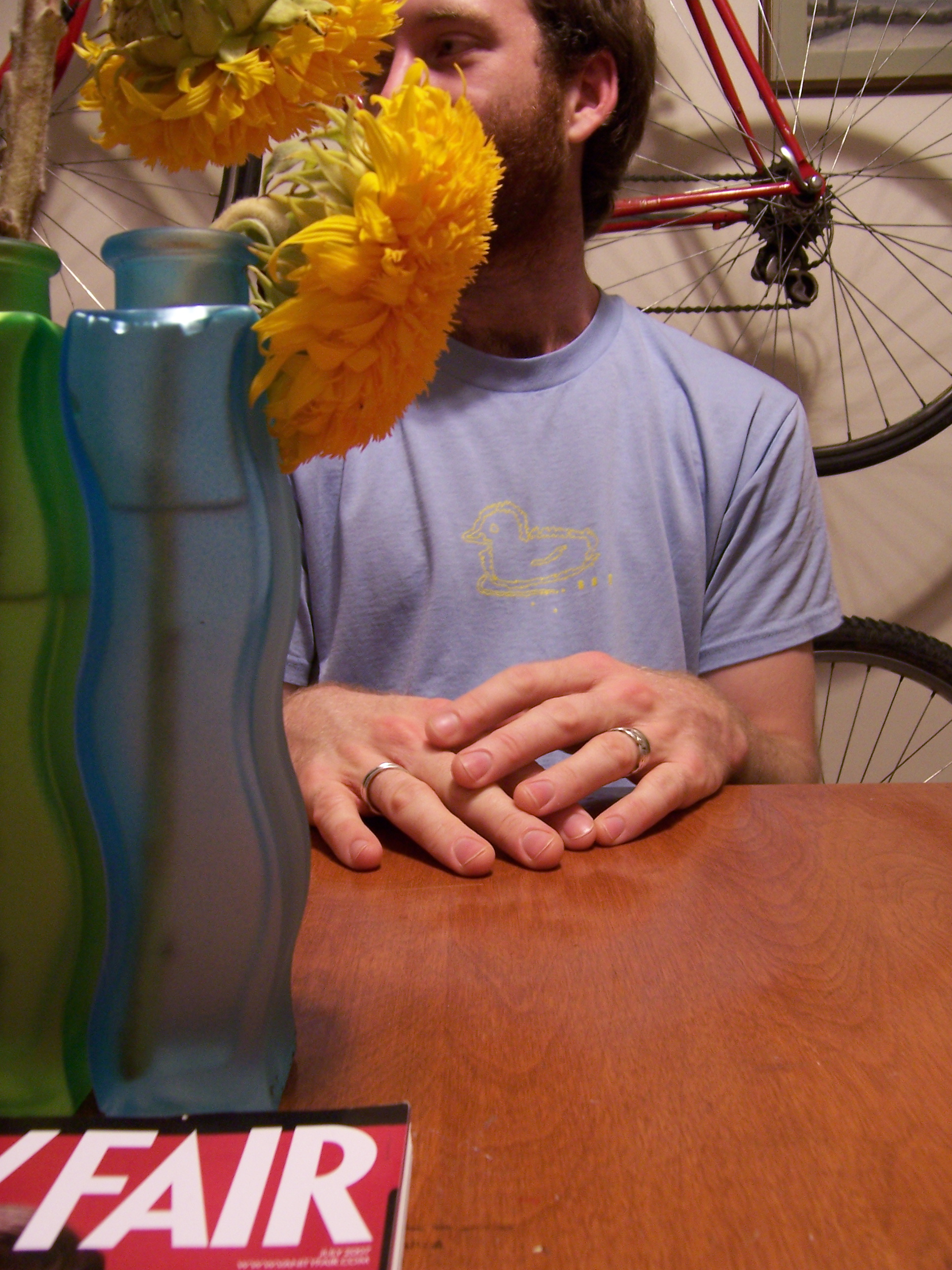Autumn for Lent
Brad Fruhauff
 Poetry Editor Brad Fruhauff observes a paradox of the Lenten season--at least for his family.
Poetry Editor Brad Fruhauff observes a paradox of the Lenten season--at least for his family.
This Lent I determined to finally take on the one sacrifice I knew would be nearest and dearest to my heart: caffeine. I've been drinking coffee since middle school (when doubtful adults cautioned my friends and I it would stunt our growth; I'm currently nearly 6' tall and my friend was 6' 4" already in middle school, so eat that, doubtful adults).
As a college teacher, my brain is my livelihood, so I went into this period of fasting with a strategy that involved slowly weaning myself off the java juice while also trying to get more sleep. You can perhaps see the apparent contradiction, here, as the reason we usually drink so much caffeine is that we don't have time to get everything done and still sleep.
But then, one of the "mysteries" of Lent is that you discover how little you need the things you're sure you need. It turns out I can manage my time better if I try, can sacrifice some things as low priorities, and can function pretty well on peanuts, bananas, and oranges for energy (the Zoo Diet?).
The etymology of Lent is simply the Old English for spring, or, more properly, long day. There's nothing particularly spiritual about that, but the whole symbolism of Easter has to do with the return of light, the emergence of life from (seeming) death, newness and rebirth in general, so it's not a far leap to see the insight learned from fasting as participating in this general trend of freshness, emergence, even freedom.
Still, life's been throwing us curve balls. Or something like IEDs disguised as curve balls but that blow up in your face. This feels more like an autumnal season, a season of losses, than spring. Without unloading too much on you, I'll just say that the excitement over my new job has been alloyed with the realization that our student loan debts are about to become so burdensome that we may not be able to move to a much larger or nicer place than we're at. Our cars have been acting up and needing expensive repairs. We've been needing new glasses and contacts and other expensive health care items. Our son is growing and so costing us more in groceries every month, and now we find we owe on our taxes. On top of that, our grandmothers all seem to be falling down and feeling generally rotten. Oh, and I have the hiccups. Coming all at once like this has made March a rough month.
I know we sometimes get confused between the "promise" of America and the promise of God. The dream of prosperity is not the same as the dream of kingdom life--except that no one owes us either. The purpose of fasting during Lent is not to learn self-sufficiency but to clarify one's priorities and to give one's sacrifice to the one who made Himself a sacrifice. Thus part of the discipline is to hold to it even when it doesn't seem to be "working."
I searched for Autumn poems on Poets.org and ran across Keats's ode "To Autumn." There Keats imagines the autumn as the "close bosom-friend" of the sun,
Conspiring with him how to load and bless With fruit the vines that round the thatch-eves run; To bend with apples the moss'd cottage trees, And fill all fruit with ripeness to the core
I think it's interesting that Keats doesn't waste a breath getting to the positives of autumn. Loss and dying becomes only the preparations for the life to come--and abundant life in which it seems "warm days will never cease."
The rest of the poem, however, turns to autumn for its own sake, and it ends by insisting that autumn "hast thy music" as well as spring, a music spare and soft as befits it:
Then in a wailful choir the small gnats mourn Among the river sallows, borne aloft Or sinking as the light wind lives or dies; And full-grown lambs loud bleat from hilly bourn; Hedge-crickets sing; and now with treble soft The redbreast whistles from a garden-croft, And gathering swallows twitter in the skies.
It is easier to appreciate the beauties of a season than of a spiritual state, but much of the Bible contains the poetry of hard times or lament, a reminder that our sufferings do not remove us from the beauty of God or of grace. This Lent, for me, has become one of learning to seek this beauty through and despite emotional and moral exhaustion.
I try to fight a pastoral urge within me to always end with a moral, so let me only suggest what isn't original or surprising but is worth repeating, that real beauty is hard to come by these days, but it's worth looking for.
Brad Fruhauff is Poetry Editor for Relief and teaches college English in the Chicagoland area. His poetry, fiction, and reviews have appeared in catapult, Burnside Writers' Collective, The Ankeny Briefcase, and Salt. He lives with his wife and son in Evanston, IL. He also hopes you'll take a moment to donate $15 or $25 to the #LoveRelief campaign.